
The Business of Fashion
Agenda-setting intelligence, analysis and advice for the global fashion community.

Agenda-setting intelligence, analysis and advice for the global fashion community.

In 2015, Birchbox was looking eastward. The New York-based beauty start-up was at the fore of a subscription box boom: it operated across six countries, formed relationships with a million users and was valued at $485 million the year before. China was a potential goldmine.
Besides the mainland’s evident size and rising spending power, co-founder and chief executive Katia Beauchamp was drawn to the fact that unlike shoppers in the West, which saw Birchbox’s core offering of curated beauty samples as a consumer’s right, Chinese had “been selling and buying samples for what seemed like decades,” she said. “We thought, well, we wouldn’t have to establish the why.”
The plans didn’t come to fruition. The company prioritised its home market, the US, before eventually expanding to countries like the UK and France, where it continues to target uninitiated “white space consumers” who “not only were not obsessed but were never interested in becoming obsessed,” said Beauchamp.
Entering China, an already beauty-obsessed market worth over $79 billion in 2019, according to Goldman Sachs, seemed incongruous with Birchbox’s core pursuits. Moreover, there were other significant obstacles: credit was less ubiquitous, people were skeptical about auto-rebilling and logistics were a challenge.
ADVERTISEMENT
More than five years on, Birchbox isn’t the only subscription box player that opted out of China, even as the market became a crucial growth engine and progressive testing ground for fashion, luxury and beauty players alike. Tellingly, few Chinese upstarts have successfully localised the business model, a well-worn move that has grown domestic start-ups into beauty empires and tech giants.
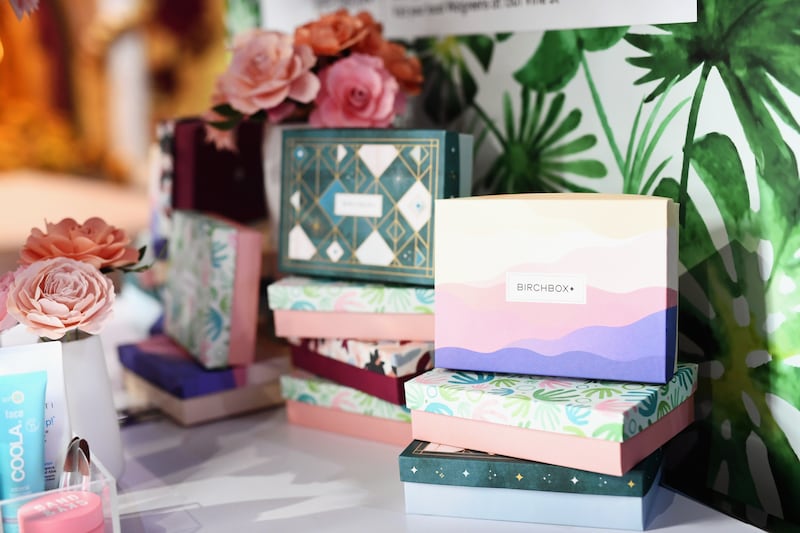
Even as subscription boxes spanning beauty, food and wellness regained momentum in Western markets over the last year — two in five consumers signed up to a service since the pandemic began, according to British cashback firm TopCashback — China’s response remains muted. The reason, largely rooted in the market’s highly engaging digital ecosystem, reveals differences in consumer habits that even players outside the subscription business should note. And while subscriptions fail to take off, a similar offering is gaining traction.
The product discovery pipeline
“Chinese consumers are not used to subscription services as a way of making purchases, not just for beauty but in any categories,” said Alice Li, senior beauty analyst at Mintel. “They want to leave their options open and don’t want to commit, maybe out of mistrust in the brands.”
This explains why the likes of Birchbox, Ipsy, Glossybox, Shoedazzle and Stitchfix haven’t launched Chinese arms; it also signals the challenges that local companies like beauty sample subscription 1p1g, which went quiet on Weibo in late 2018, are facing.
China’s aversion to subscription boxes also comes down to the highly engaging and convenient nature of local e-commerce, which according to eMarketer will account for more than half of the country’s total retail sales this year. Subscriptions are a less attractive proposition when a shopper can repurchase a needed essential item and receive it in a few hours.
It doesn’t help that discovering products through influencer reviews and interactive social media livestreams has become a national pastime. “Consumers have gotten used to learning a lot about the products they are buying and really hyper specifying what it is they want to buy,” said Ben Cavender, Shanghai-based managing director at China Market Research Group. “Against that, it’s difficult for subscription boxes to succeed as consumers are giving up so much curation power to the subscription service.”
Once they get one product they don’t need or don’t like, they don’t think it’s value for money [anymore.]
Some fashion and beauty categories could defy the odds, but outliers are few and far between, and relatively small for the market. Take Nanrenwa, a men’s sock subscription, which was founded in 2011, raised 3 million yuan (around $460,073) in 2014 and has a community of 68,000 followers on Weibo. Cavender predicts that rather than apparel or accessories, the business model could better suit lower cost items like snacks, as vendors will find it easier to use data to tailor subscriptions to shoppers’ tastes.
ADVERTISEMENT
And while value for money is a tenable reason for shoppers, especially younger ones, to subscribe, relying on this is a risk. “Young consumers [have] low budgets, low tolerance and low loyalty, but know beauty brands and products very well,” she said. “Once they get one product they don’t need or don’t like, they don’t think it’s value for money [anymore.]”
Buying into the unknown
Though subscription boxes haven’t caught on, China is proving much more welcoming to a different kind of box: the mangxiang surprise box, also known as mystery box or blind box.
The trend originated in Japan, where shoppers queue for fukubukuro, or “lucky bags,” at the beginning of every year despite not knowing their exact contents. The trend has since caught on across the globe and has been adopted by brands from Burberry to Colourpop Cosmetics.
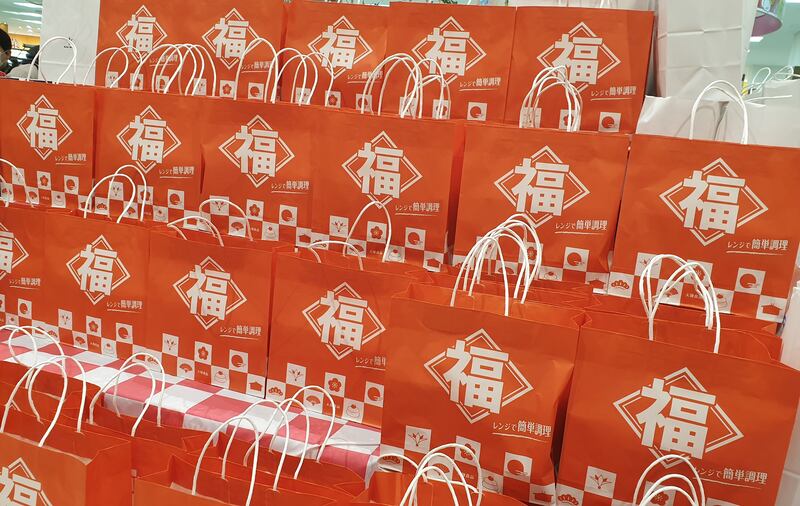
In China, the trend gained ground with toys, a space led by Pop Mart, which sells collectibles for around $8 apiece without revealing which specific models customers will receive (the brand releases a line-up ahead of each launch). The business was founded by multi-billionaire Wang Ning in 2010 and is now worth around $7 billion; it listed on the Hong Kong Stock Exchange last December.
According to Pop Mart, over 90 percent of its shoppers are 15 to 30 years old; a report released by Guotai Junan Securities in 2019 revealed that almost 200,000 customers on Tmall spent over 10,000 yuan ($1,533) per year collecting blind boxes.
The concept quickly caught on in the beauty world. Take OnlyWrite, a beauty retailer that opened its first store in Wuxi last January. Since then, it has unveiled 11 stores across China and founder Zhou Jianlei plans on opening 100 more in 2021. As successful as the company may be, surprise boxes form only a small part of OnlyWrite’s business. The same goes for other brands, like Fresh, Sephora China, local beauty retailer The Colorist and L’Oréal’s My Beauty Box.
During Lunar New Year, Sephora even collaborated with Popmart on limited edition dolls and beauty blind boxes. Luxury brand Lanvin dipped its toes into the space last year by launching a WeChat game for Qixi festival featuring a virtual blind box vending machine where users could bid for chances to win items like sneakers and coffee mugs.
ADVERTISEMENT
This kind of concept is better for fashion brands than beauty brands.
“It’s more of a marketing activity for now, to attract consumer attention, rather than a revenue stream,” said Li. At present, surprise boxes are largely being used to promote limited edition, rather than core, products. According to Li, most of them are being targeted at loyal customers, rather than new users. “It’s difficult for brands to attract new users that way,” she said.
And while surprise boxes are proving more popular among beauty players, fashion brands could also get involved. Considering luxury brands like Gucci have released collections featuring the likes of Doraemon and Mickey Mouse, dropping toys with Pop Mart’s strategy probably wouldn’t be a stretch too far. The concept could also be extended to accessories.
“This kind of concept is better for fashion brands than beauty brands,” said Li. “If customers want to buy skincare or cosmetics, trials are necessary. For fashion or accessories, it’s easier to like or buy it without seeing what it looks like [on your face].”
时尚与美容
FASHION & BEAUTY
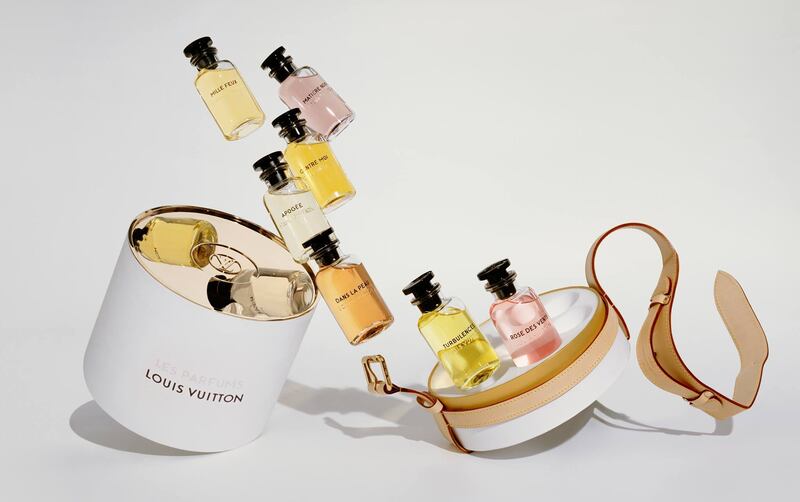
LVMH to Build $154 Million Beauty E-Commerce Hub in Shanghai
French luxury conglomerate LVMH has broken ground in Shanghai on its largest e-commerce sales and storage hub for cosmetics in the Asia-Pacific region, which is scheduled to be operational by the end of next year. The hub will serve as an industrial base for e-commerce packaging and dispatch for the group’s cosmetics and perfume products. It covers a nine hectare area and is expected to cost nearly 1 billion yuan ($154 million). In 2020, the Asia market, excluding Japan, accounted for 45 percent of LVMH Group’s perfumes and cosmetics sales, according to the company’s annual report, making it the largest regional market for these categories. The China market in particular was singled out for playing a key role in regional growth. (BoF)
‘Lipstick King’ Li Jiaqi Reveals Future Brand Ambitions
In the future, the livestreaming superstar can envision himself building a beauty conglomerate similar in size and scope to Estée Lauder or L’Oréal Group, Li said in an interview with domestic media platform, Sina. His ambitions include a “Li Jiaqi Group” that encompasses online and offline stores, reaching far beyond his livestreaming roots. A move into building his own brand or brands would fit with a broader recent trend for Chinese KOLs to leverage their massive audiences and young Chinese consumer appetites for both local and niche beauty brands, to launch their own beauty brands. (BoF)
Peacebird Sees Q1 Net Profit Rise 2,222%
The Shanghai-listed company said in its first quarter earnings announcement that net profit had risen to 203.3 million yuan ($31.29 million), a jump of 2,222.25 percent year-on-year. Womenswear saw the biggest growth, up 120.42 percent year-on-year, while menswear sales rose 77.2 percent over the same period in 2020. As with many other Chinese fashion companies reporting strong first quarter growth in recent weeks, Peacebird acknowledged that these numbers come off the unusually low base of last year’s first quarter, which coincided with the worst of China’s Covid-19 outbreak. This being said, Peacebird was also quick to pivot to e-commerce and saw a significant rise in online sales over the course of 2020. In the first quarter of 2021, e-commerce sales revenue rose 51.7 percent year-on-year. (BoF)
科技与创新
TECH & INNOVATION
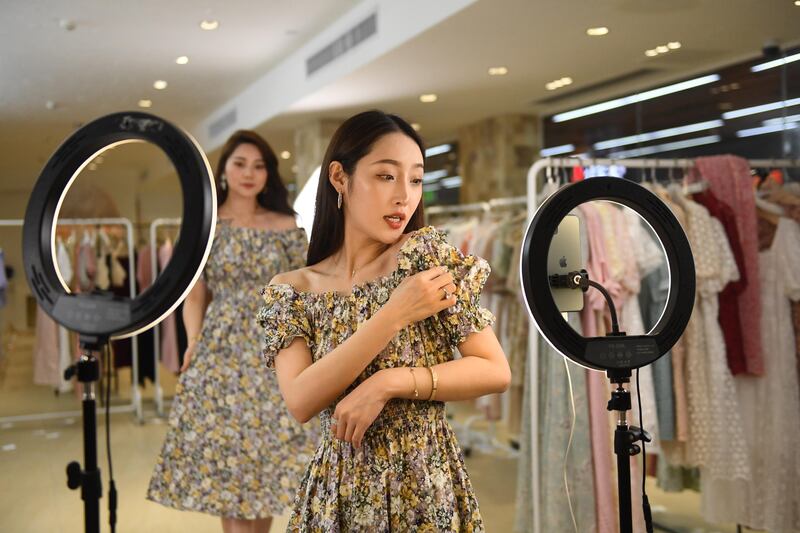
Regulators Double Down on Livestream E-Commerce
New rules from seven government agencies were released on April 23, the latest in China’s increasing supervision of its tech industry. Beginning May 25, platforms will need to set up systems to rank users by metrics like views and transactions, establish risk management protocols to protect users from illegal marketing tactics and take steps to secure users’ personal data. Moreover, platforms must verify the identity of livestream hosts before they begin broadcasting and users under the age of 16 are prohibited from hosting livestreams. The requirements — which add onto the State Administration for Market Regulation’s rules, released in mid-March, on livestreams sales, misleading activity and data privacy — indicate the administration’s desire to keep up with the fast-growing and increasingly lucrative medium. (Technode)
Rakuten and Tencent’s Mega Deal Comes Under Regulatory Pressure
WeChat owner Tencent Holdings’ investment in Japanese e-commerce and IT giant Rakuten, which saw Tencent become the latter’s majority shareholder with a 3.65 percent stake, is drawing scrutiny from both the Japanese and US governments due to fears that Beijing will gain access to users’ private information. Aside from e-commerce, Rakuten also runs a telecommunications business, named Rakuten Mobile. Japan’s foreign exchange and trade control law limits investments by foreign firms and investors in Japanese businesses in sensitive fields including telecommunications; the news exposes the limits of these rules. Sources said that the Japanese government will conduct regular interviews with Rakuten and share results with the White House. (BoF)
消费与零售
CONSUMER & RETAIL
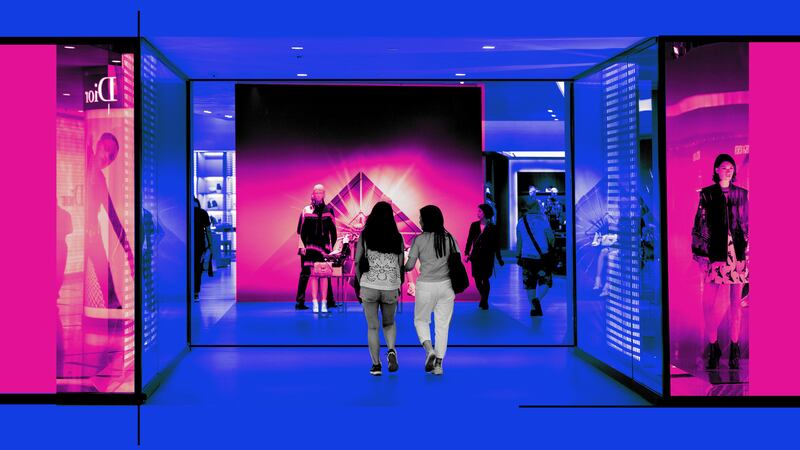
China to Launch Month-Long Effort in May to Boost Consumption
A series of promotional activities, including a new consumer goods expo in Hainan, will aim to boost domestic consumption and reduce reliance on foreign markets, priorities highlighted by President Xi Jinping. The nation-wide schedule includes car shows, food fairs and online promotions on food, travel, and other goods for half a month. Meanwhile, Hainan’s Haikou city will host the inaugural consumer goods expo from May 7-10 featuring brands like Swatch and Shiseido, with 200,000 visitors expected to attend. (Reuters)
Alibaba Launches New Cargo Route to Satisfy Chinese Luxury Demand
The Chinese tech and retail giant’s logistics arm Cainiao plans to launch direct freight flights between Singapore and Hainan Island to shuttle duty free beauty products, handbags and watches to the mainland. Cainiao will run seven return flights per week between the islands and is also looking to launch freight routes between Hainan and other destinations popular with Chinese tourists, such as Japan and South Korea. Zhao added that flights to Europe will also be considered in the future. (BoF)
政治、经济、社会
POLITICS, ECONOMY, SOCIETY

Chloé Zhao’s Oscar Win Met With Praise, Censorship
Sunday night was a milestone for the Nomadland director, who alongside making history as the first Asian woman to win the best director Oscar, nabbed best picture and saw the film’s star Frances McDormand take best actress. But Zhao’s success has been controversial in China, where posts and hashtags about her victory were removed on social media, likely owing to recent backlash against an eight-year-old interview in which she described China as “a place where there are lies everywhere.” Though some commentators criticised Zhao for her comments, many Chinese commentators expressed their pride and congratulations. “She is the pride of Chinese and even all Asian people,” said a Weibo user. (The Guardian)
Sporting Goods Brand 361 Degrees Doubles Down on Using Xinjiang Cotton
The Fujian-based company has committed to purchasing materials including raw cotton, yarns from the China Cotton Industry Alliance (CCIA) and using the association’s trademark in its sales and marketing campaigns. The move signals the widening rift between domestic brands and western companies like Nike and H&M, which spoke out against the alleged use of forced labour in China’s Xinjiang region and spurred calls for boycotts that boosted homegrown rivals. It also follows backlash against Switzerland-based Better Cotton Initiative (BCI), which last year suspended licensing activities in the region and came under fire for the unexplained removal of a statement on its website. (SCMP)
China Decoded wants to hear from you. Send tips, suggestions, complaints and compliments to our Shanghai-based Asia Correspondent casey.hall@businessoffashion.com.
With consumers tightening their belts in China, the battle between global fast fashion brands and local high street giants has intensified.
Investors are bracing for a steep slowdown in luxury sales when luxury companies report their first quarter results, reflecting lacklustre Chinese demand.
The French beauty giant’s two latest deals are part of a wider M&A push by global players to capture a larger slice of the China market, targeting buzzy high-end brands that offer products with distinctive Chinese elements.
Post-Covid spend by US tourists in Europe has surged past 2019 levels. Chinese travellers, by contrast, have largely favoured domestic and regional destinations like Hong Kong, Singapore and Japan.